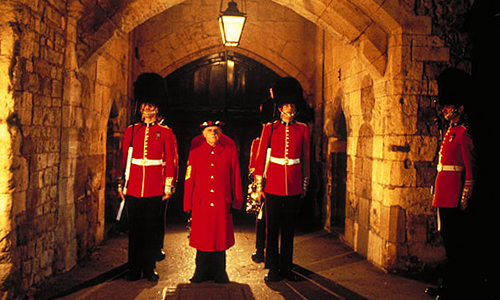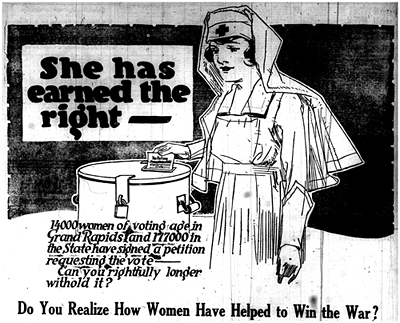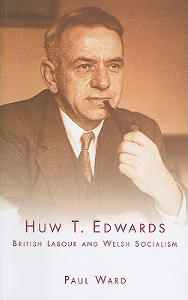WWI – The Great War bred a moment of unity in British patriotism
 Yeoman Warders of the Tower of London dutifully carrying out their ancient Ceremony of the Keys
Yeoman Warders of the Tower of London dutifully carrying out their ancient Ceremony of the Keys
Fri, 23 May 2014 14:45:00 BST
“...Britain being in the right allowed the Welsh, the Scots and the Northern Irish to accommodate their sub-national identities within Britishness...”
 NIGHT after night, while guns thundered and soldiers died on the battlefields of France, the Yeoman Warders of the Tower of London dutifully carried out their ancient Ceremony of the Keys. It took place without fail, from the declaration of war in August 1914 to the Armistice of November 1918. And during the post-war years, the ranks of the Beefeaters were increasingly filled by veterans of the Great War. This symbol of institutional continuity and how British identities were reinforced by the conflict fascinates University of Huddersfield historian Professor Paul Ward (pictured).
NIGHT after night, while guns thundered and soldiers died on the battlefields of France, the Yeoman Warders of the Tower of London dutifully carried out their ancient Ceremony of the Keys. It took place without fail, from the declaration of war in August 1914 to the Armistice of November 1918. And during the post-war years, the ranks of the Beefeaters were increasingly filled by veterans of the Great War. This symbol of institutional continuity and how British identities were reinforced by the conflict fascinates University of Huddersfield historian Professor Paul Ward (pictured).
He is heading a project which researches the Beefeaters and Britishness and he has already delivered a sequence of lectures that describe how the Tower’s Yeoman Warders have represented the longevity of English history, providing underpinning for the monarchy in a rapidly-changing world.
“During 1914-18, the Ceremony of the Keys went on without interruption and at the end of the war, British victory seemed to prove that these sorts of ritual were valid and important and had allowed Britain to survive in difficult circumstances. They gave the British a sense of what they were fighting for,” says Professor Ward.
 One of his arguments is that the First World War – far from representing a great social upheaval – led to a triumph of political and social conservatism in Britain. An article – ‘Women of Britain Say Go’: Women’s Patriotism in the First World War – explored the theme on the basis of gender. Professor Ward dismantles the traditional view that women were given the vote in 1918 as a reward for taking over from men in industrial jobs. Most of these women were under 30, which meant they were ineligible to vote in 1918.
One of his arguments is that the First World War – far from representing a great social upheaval – led to a triumph of political and social conservatism in Britain. An article – ‘Women of Britain Say Go’: Women’s Patriotism in the First World War – explored the theme on the basis of gender. Professor Ward dismantles the traditional view that women were given the vote in 1918 as a reward for taking over from men in industrial jobs. Most of these women were under 30, which meant they were ineligible to vote in 1918.
“Women got the vote because they were considered to have contributed to the defence of the home – and very much a traditional, gendered version of the home,” says Professor Ward. “This is another way that that this massively challenging and traumatic event can be seen as leading towards a triumph of social or domestic conservatism.”
People’s patriotism
Professor Ward – who is Head of History, English, Languages and Media at the University of Huddersfield – is a leading authority on issues of British national identity and left-wing patriotism. The First World War and its aftermath have been an important theme in many of his books and articles, including Red Flag and Union Jack: Englishness, Patriotism and the British Left, 1881-1924 and Britishness since 1870.
“During war, people’s interest in their national affiliation becomes heightened, so although I am not a military historian, the First World War has become a site in which I have explored many of aspects of people’s patriotism,” says Professor Ward.
 One of his latest books is a biography of Welsh trades unionist, politician and WWI veteran Huw T. Edwards, who late in life became known as the unofficial Prime Minister of Wales.
One of his latest books is a biography of Welsh trades unionist, politician and WWI veteran Huw T. Edwards, who late in life became known as the unofficial Prime Minister of Wales.
“I have been looking at the ways in which people from different parts of the UK experienced the First World War as a moment of unity that led them to think about being British and part of the union, seeing that as a valuable identity. There was the sense of Britain being in the right, standing up for small nations, and this actually allowed the Welsh, the Scots and the Northern Irish to accommodate their sub-national identities within Britishness.
“Huw T. Edwards was a miner before the war and he took a class-based view of his life. His first language was Welsh and when he had been into England he had found it strange and unusual, almost a foreign country. But then he served in the field artillery and this gave him a greater sense of being part of the UK or Britain.”
Professor Ward is also exploring the extent to which memorials to soldiers who died in the First World War became a part of national identity, acting as daily reminders of people’s sense of Britishness.
- To read more about our World War One Centenary news and events, please visit the University of Huddersfield First World War Commemoration page.







